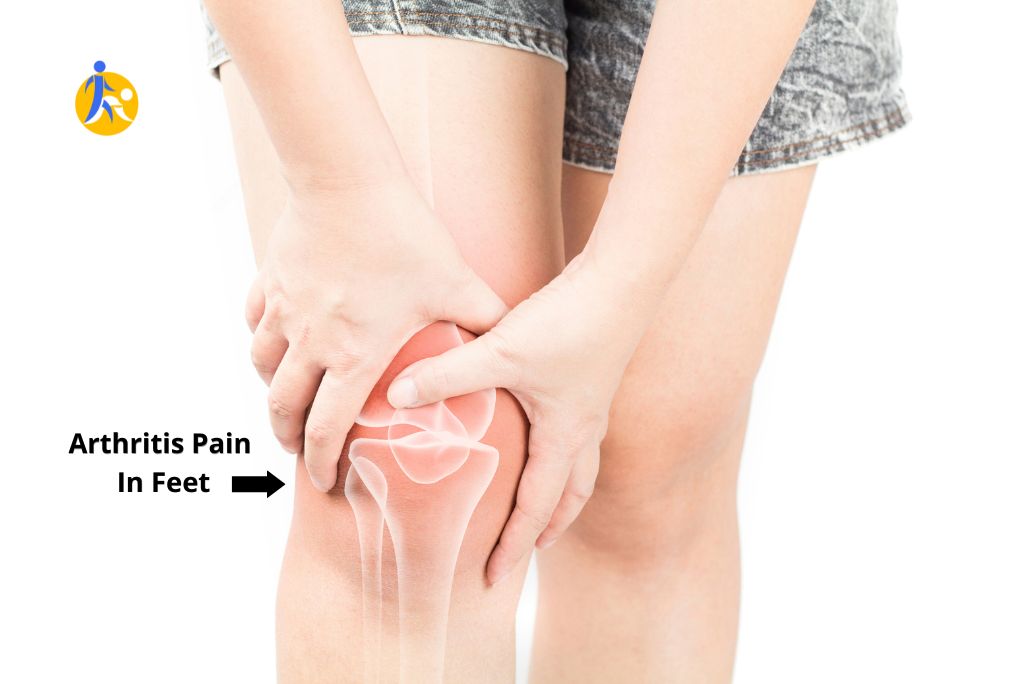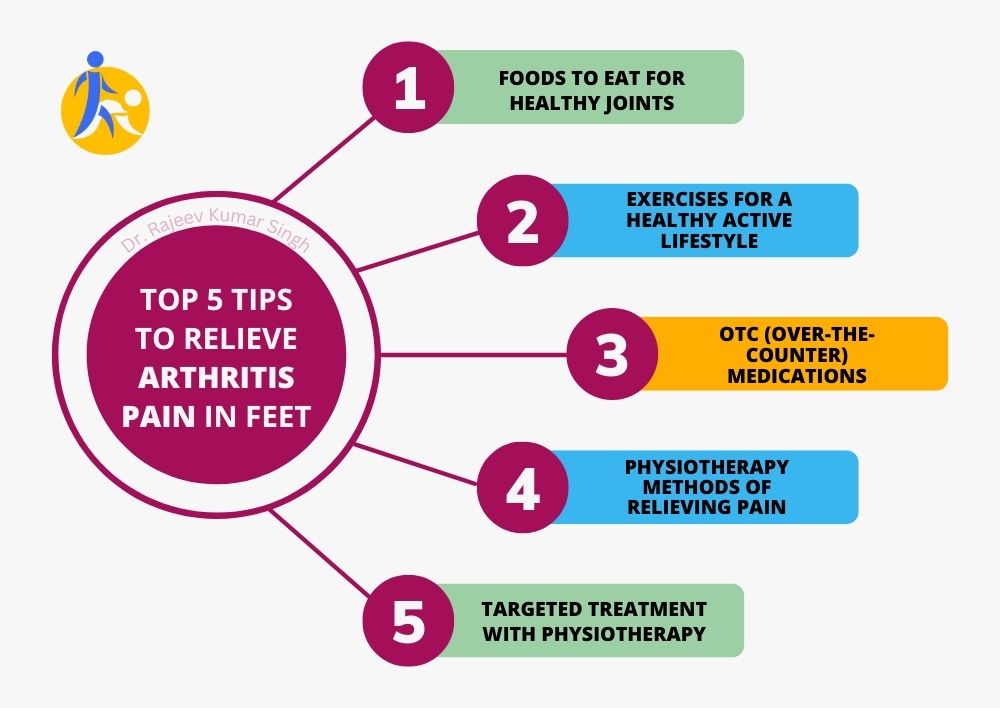Dr. Rajeev Kumar Singh Patna, an experienced orthopedic based in Patna, India, offers his top five tips for relieving arthritis pain in the feet that can be caused by degenerative arthritis, rheumatoid arthritis, or osteoarthritis (1). Before you read the tips offered below, please note that these remedies are only meant to help treat the symptoms of arthritis and should not replace the advice of your physician. If you have any questions or concerns regarding the information provided in this article, contact your physician immediately.
1) Foods to Eat for Healthy Joints
No need for costly arthritis treatments or prescription medications when there are simple solutions right at your fingertips, including the food you eat! Dr. Rajeev Kumar Singh Patna, a doctor who specializes in treating patients with arthritis, offers the following suggestions of foods that help reduce pain and inflammation and improve joint health: olive oil, soy protein, whole grains, fatty acids from fish and nuts, Vitamin C (from oranges), antioxidants from berries and carrots
2) Exercises for a Healthy Active Lifestyle
With help from Sai Health Care Wellness Centre, Dr. Rajeev Kumar Singh shares his top five tips for easing arthritis pain in feet with active exercise routines:
1) Stretch the whole foot before standing up from sitting
2) Massage the bottoms of your feet and rotate your ankles when you are getting up
3) Alternate between walking and using a stationary bike for about twenty minutes
4) Use a small vibrating foot massager after a long day of work or taking care of children
5) Take breaks during physical activities to allow aching muscles to relax
3) OTC (Over-the-counter) Medications
OTC (Over-the-counter) Medications: These medicines, such as ibuprofen and acetaminophen, are often used for arthritis pain or discomfort. OTC medications work by temporarily relieving pain or swelling that can affect muscles, joints, and other tissues of the body. Generally, these medications will not cure arthritis but they are often used on a short-term basis to help manage symptoms of pain and inflammation. Aspirin is also an over-the-counter medication that is sometimes recommended for people with mild chronic arthritis who do not have any stomach problems when taking aspirin. When over-the-counter medicines cannot ease your arthritis symptoms you may want to speak with your healthcare provider about other remedies and treatments that could provide some relief.

4) Physiotherapy methods for Relieving Pain
- Improve your posture by sitting up straight and try not to slouch when you’re sitting at a table or desk. This can help decrease pain as well as make you appear more confident when you walk around at work, out on the street, or in other public spaces.
- Avoid prolonged standing; take frequent breaks and always alternate with squatting or bending over instead of staying still for too long.
- Eat well! Healthy food provides your body with the nutrients it needs for repair, regeneration, and growth and is essential for healthy joints too.
- Reduce the intensity of your physical activity so that it does not lead to soreness, swelling, or injury in any joint.
- Consult a qualified physiotherapist if there is no improvement after 3 months from diagnosis.
5) Targeted Treatment with Physiotherapy
Pain and stiffness in the joints are one of the most common health problems that arthritis inflicts. For people suffering from it, there are two ways they can treat their symptoms. Either by relieving the pain through medication or by providing relief with physiotherapy exercises and stretches. While each patient has their own choices, we at Sai Health Care Wellness Centre recommend that all patients explore both avenues before making a final decision as to which will suit them best. With this in mind, here are our top five tips for treating arthritis-related pain
